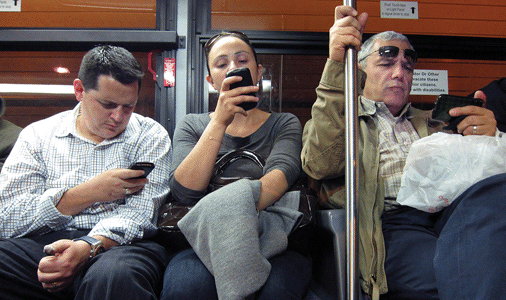Cell-Phone Bill, Sit Down Before Opening
Thursday, March 7th, 2013March 7, 2013
A Canadian family from British Columbia received a surprising notice in the mail this week. Matt Buie opened his phone bill and found his charges for January totaled $22,000. The family had taken a vacation to Mexico in January, and the extraordinary bill represented roaming fees–fees charged by cell-phone carriers when customers use their cell phones outside the carrier’s coverage area. Roaming fees can be several times the amounts that would be charged for the same usage within the coverage area.
The technology firm Apple Inc. has engineered a setting to temporarily turn off data roaming on its iPhone to avoid this very problem. Buie had in fact turned off roaming on his iPhone before leaving Canada. However, his son–confined to a hotel room with a severe sunburn–changed the setting and used the smartphone to entertain himself. The $22,000 bill represents three days of one bored 11-year-old streaming videos and games in Mexico.

Using your smartphone outside your coverage area can be hazardous to your bank account. (© Gary Hershorn, Reuters/Landov)
Roaming data fees are difficult to assess, as people rarely have any idea of how much data they are using when they access the Internet, read e-mail, or watch videos on their phone. The European Union (EU) passed a law in 2009 that limits roaming data charges within the EU to 50 euros (about $65 U.S.).
In the United States, all major phone companies have formed an agreement with the Federal Communications Commission (FCC) that, by April 2013, they will send warnings via text messaging to customers who have reached the limit on their voice, messaging, or data plan in a given month. This law will apply to both domestic and international usage.
Canada has no such law. So, Matt Buie is currently attempting to negotiate his $22,000 phone bill down to some reasonable level. No word on the status of his son’s allowance.
Additional World Book articles:
- Telephone
- The Second Wireless Revolution (a special report)


